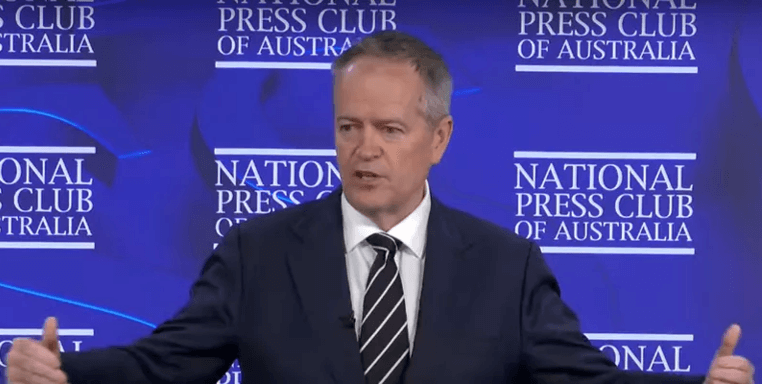
The NDIS Review Report is out. What does this mean for us?
The Independent NDIS Review Panel’s report on their recommendations for the future of the NDIS was released yesterday. Minister Bill Shorten spoke to the National Press Club Luncheon, and you can watch his speech here.
So what does this mean for our community?
Nothing will change right now. The report strongly recommends that any changes be fully co-designed by people with disability, our representative organisations and advocates. The NDIS Review Panel think these changes should be made gradually, over 5 years.
The Government would need to accept all, most or some of the recommendations.
There are 26 recommendations and 139 actions in the report. The Panel recommends introducing Foundational Supports for people with disability outside of the NDIS. This would help provide support through Navigators to help people access mainstream and disability supports. Some people may also receive supports like cleaning, gardening, or assistive technology. The report suggested that Navigators would replace Local Area Coordinators, Support Coordinators and Early Childhood Approach Coordinators.
Foundational Supports would also mean early intervention supports for kids with developmental delay outside of the NDIS. The report recommends these supports be provided in schools and day care centres by allied health professionals. We are concerned that in regional and remote Australia, this could increase segregation. There is a shortage of allied health professionals in Australia, and there is risk that kids could be forced to attend specific schools in order to access these supports. We will be advocating about this issue.
Another recommendation is that eligibility for the NDIS and access to it should change. Instead of being based on diagnosis, people would be supported to apply for access based on the impact of their disability on their function. The report recommends that the Government pay for any assessments people need to prove the impact of their disability on their function. The eligibility lists would be removed, and the NDIS access request should be simplified. They also recommended that NDIS stop using ‘primary’ and ‘secondary’ disability. Removing the eligibility lists could make it more difficult for people with List A conditions to apply for access, but could make it easier for people without a diagnosis to apply for access.
The NDIS Review Panel recommended that planning change a lot. They think that an allied health professional should assess our support needs, and create a funding budget based on our support needs. The Panel want funding plans to be a lot more flexible, and that people with disability and families be trusted to use our funding in the way that best supports our needs, with a lot more guidance from the Navigators, and that we use evidence based supports. These changes would need to be very carefully co-designed to make sure that it’s fair for everyone. We’re also concerned that there is a huge shortage of Allied Health professionals in Australia, and the Panel recommends they are involved in deciding NDIS funding budgets, providing Foundational Supports, and providing therapy to NDIS participants. We’re not seeing any recommendations about where all these allied health professionals will come from.
The report suggests a new approach to NDIS supports for people with psychosocial disability which would be focused on personal recovery, and recognise that people have times when they need more support and times when they need less.
They also recommend that the Government fund a lot more support for people with poor mental health outside of the NDIS. The Review Panel recommended that most people who need 24/7 support receive funding for a ratio of 1:3 (1 support worker to 3 people with disability). This means that most people needing this kind of support would be required to share their support with others. We are concerned that this could impact our human right to choose where we live, and who we live with, and will be advocating for more choice and control in this area.
The report also made a major recommendation about how we use providers. The Panel thinks we should only be using NDIS registered providers, and suggested 4 levels of ‘registered’ and ‘enrolled’ providers:
- Advanced Registration for ‘high risk’ supports,
- General Registration for ‘medium risk’ supports,
- Basic registration (light touch) for ‘lower risk’ supports, and
- Enrolment, which is basic visibility and requirements for ‘lowest risk’ supports (eg. cleaners and gardeners)
They suggest that providers be paid in a similar way to HICAPS, like how we claim services on Medicare or private health insurance. The Panel’s intention is to improve oversight of who is working with NDIS participants, reduce fraud and improve safety. We disagree strongly with limiting participants to registered providers, and are concerned that it would put people in regional and remote Australia at risk of having little or no support. We believe there are other, better ways of improving safety and reducing fraud while still ensuring that people have choice and control over who supports us, and the freedom to use innovative supports from unregistered providers. An example is to improve how NDIS check-in with participants to check for safety, effectiveness of supports and monitor for fraud. We will be advocating strongly that our choice and control over who provides our supports is protected, and people retain access to unregistered providers.
The above is a very brief summary of the NDIS Review report. You can also read this summary from Team DSC. SWAN is working closely with Every Australian Counts to advocate for autistic people and people with disability living in regional and remote Australia. We encourage you to subscribe to Every Australian Counts to stay up to date with campaigns, and the co-design work we will be doing in this area.
We will be working to keep you informed about the recommendations, the co-design work on how they will be implemented, and as we know more, we’ll share it with you.
Please contact us if you have any questions or we can be of support.

